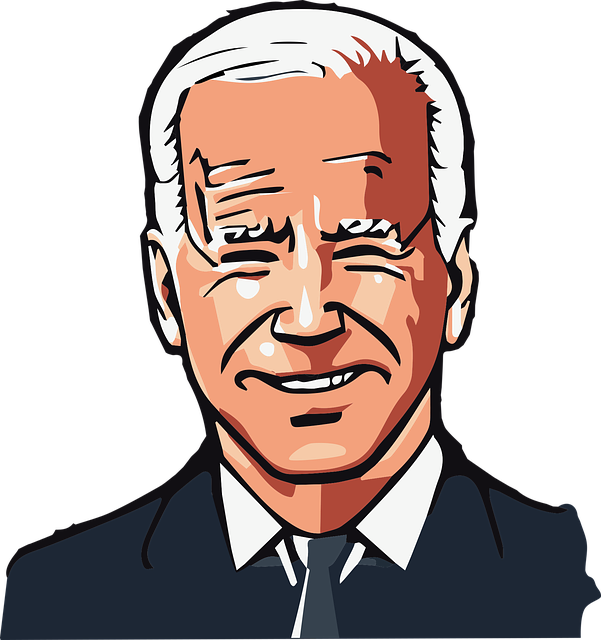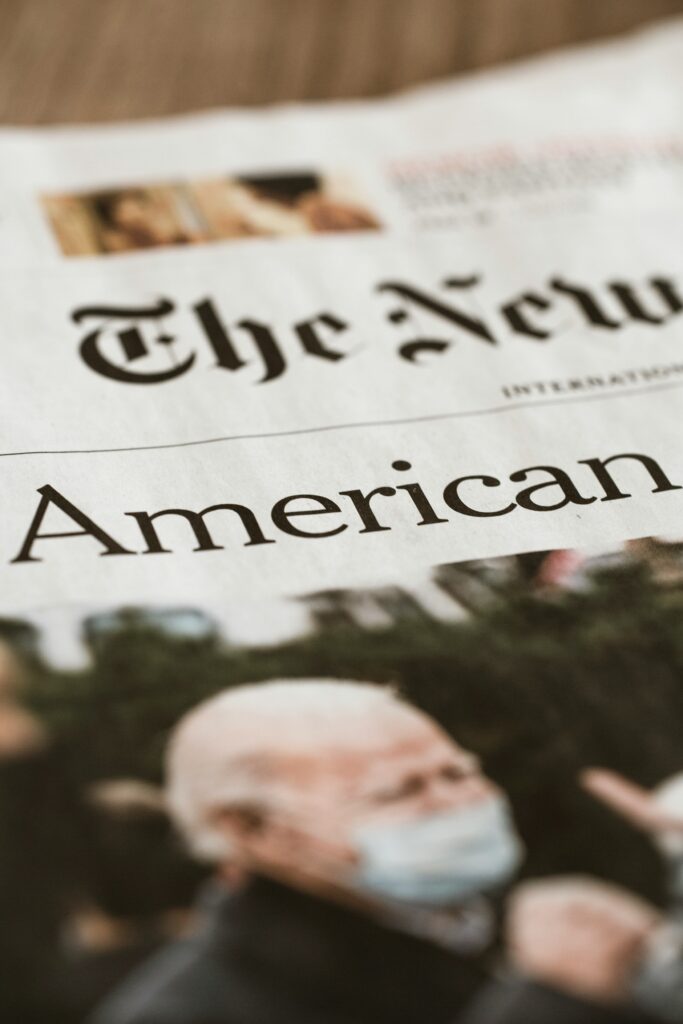Why Did So Many Reporters Miss Biden’s Mental Decline?

Over at The Free Press, Bari Weiss took a hammer to the mainstream media. She blamed them for failing to identify the mental decrepitude President Biden displayed during the presidential debate Thursday night for ideological reasons.
“It was a catastrophe for an entire class of experts, journalists, and pundits, who have, since 2020, insisted that Biden was sharp as a tack, on top of his game, basically doing handstands while peppering his staff with tough questions about care for migrant children and aide to Ukraine.”
Her words and argument may be overwrought. Yet Ms. Weiss made a fair point. Many reporters failed to identify President Biden’s cognitive decline, in part, because of ideological bias.
Most reporters and editors lean left, and most Democrats believed the media had over-covered President Biden’s age and mental faculties. Reporters had little incentive to explore Mr. Biden’s health even if they had been so inclined. Readers and editors would have pushed back–and might have pushed back hard.
Indeed, The Wall Street Journal broke the story. Their conservative readers were eager for a juicy story, and they were rewarded. On June 6, Siobhan Hughes and Annie Linskey broke the story. Below is their lead sentence:
When President Biden met with congressional leaders in the West Wing in January to negotiate a Ukraine funding deal, he spoke so softly at times that some participants struggled to hear him, according to five people familiar with the meeting. He read from notes to make obvious points, paused for extended periods and sometimes closed his eyes for so long that some in the room wondered whether he had tuned out.
Do their words sound familiar?
By contrast, The New York Times’ Washington bureau ran a story on June 21 that criticized Republicans and conservatives for circulating “videos of Mr. Biden that lacked important context and twisted mundane moments to paint him in an unflattering light.” The story was right to call out the misleading video of President Biden wandering off during the G7 Summit meeting; he was greeting one paratrooper.
Yet the other two videos showed Mr. Biden’s frailty. Still, Times readers were left in the dark about the President’s decrepitude. The paper published a critique of a critique; it didn’t exculpate him from the charge of being too old.

(Image courtesy of Markus Spiske on Unsplash)
An all-too-brief history of big stories the Washington press corps missed
Yet Ms. Weiss’ critique goes too far. Ideological bias alone wasn’t to blame, and it may not have been the main reason.
We in the Washington press corps miss big stories often.
For months, Washington Post reporters Bob Woodward and Carl Bernstein, who were on the paper’s metro staff rather than the national desk, had the Watergate story all to themselves. Only Newsweek reporter Michael Isikoff and Drudge Report founder Matt Drudge broke the story that the priapic President Bill Clinton had a sexual affair with a White House intern. Very few reporters said that contrary to the claims of the Bush administration, there was little evidence Iraq President Saddam Hussein possessed weapons of mass destruction.
Liberal reporters could have broken Watergate and the false narrative about Iraq’s weapons of mass destruction. Yet few did.
The same was true about President Biden’s mental incapacity (and the fake faith healing, physical abuse, and false imprisonment of Peoples Temple leader Jim Jones, for that matter).
A question of institutions and access
The less important unifying thread among the stories is institutional: Discovering that the President of the United States (POTUS! 46!) is impaired mentally requires significantly more reportage than that of a member of Congress.
Congressional reporters hang around and interview members regularly, and if a member has lost a step, such as Senate Minority Leader Mitch McConnell, reporters will soon find out. By contrast, White House reporters rarely if ever interview the president, and even fewer have done so with President Biden, whose aides restrict his access to the media significantly.
The more important unifying thread among the stories isn’t ideological bias so much as it is the print media’s staid culture.

(Image courtesy of Manny Becerra on Unsplash)
Blame, too, journalism’s staid culture
As a reporter in Washington, I must acknowledge an inconvenient truth: It’s easy to miss or overlook a big story.
Your job militates against original thinking. You interview official spokespeople and professionals. You watch cable news outlets like Fox, CNN, and MSNC. And you talk with colleagues with similar opinions as yours or those loath to share information. Above all, you have deadlines to meet. If your paper has investigative reporters on staff, they are on the hunt for scandalous illegality rather than plain old Washington dysfunction.
Other observers say reporters are naïve and ignorant about how the government works. Take the late Washington Monthly founder Charles Peters.
In How Washington Really Works, he described official Washington as a land of “make believe” where, like where, like the Winter Palace under Nicholas and Alexandra, “earnest discussions about the poor went on continually but the discussions were seldom accompanied by effective action.” “Charlie,” as anybody who met him referred to him as, said all too often reporters were part of the problem rather than the solution. “It dutifully covers the apparent action—the announcement of programs, the enactment of legislation—rather than finding out how the programs are executed and the legislation is implemented or what the government is not doing about crucial problems,” he wrote.
Charlie, who died earlier this year, was no conservative or left-wing populist. He helped run John Kennedy’s 1960 (successful) primary campaign in West Virginia, was an official in the Peace Corps, and was known, somewhat inaccurately, as the “godfather of neo-liberalism.” His critique can’t be dismissed as that of an ideologue.
Nor was it fire breathing. Charlie implied that discovering the truth takes effort, and he was right. You must break from the pack and ask questions, talk with knowledgeable people, and string together interviews.
How they got the story
Indeed, Wall Street Journal reporters Siobhan Hughes and Annie Linskey followed the script. Ms. Hughes, who covers Congress, interviewed Republican leaders who interacted with President Biden, not only Speaker Mike Johnson but also former Speaker Kevin McCarthy. Mr. McCarthy gave a tantalizing quote: “I used to meet with him when he was vice president. I’d go to his house. He’s not the same person.”
A Republican might be expected to criticize a Democratic president even in a personal way. Yet the Journal reporters recognized the problem. They saw that the Biden White House was attempting to cover up or play down the President’s mental decline. After they talked with Democratic lawmakers once, they called the reporters back. As Ms. Hughes and Ms. Linskey noted,
The White House kept close tabs on some of The Wall Street Journal’s interviews with Democratic lawmakers. After the offices of several Democrats shared with the White House either a recording of an interview or details about what was asked, some of those lawmakers spoke to the Journal a second time and once again emphasized Biden’s strengths.
“They just, you know, said that I should give you a callback,” said Rep. Gregory Meeks, a New York Democrat, referring to the White House.
Bates, the White House spokesman, said: “We thought it was important that all perspectives be represented” to correct what he said were “false and politically motivated claims.”
Are the Journal reporters themselves biased ideologically? Whatever the case, their reporting stands up. Biden administration officials have not made the President available for interviews with reporters.
Journalism has many problems. Perhaps this latest episode can remind editors and managers to hire and promote curious reporters willing to break from the pack like Ms. Linskey and Ms. Hughes or ones with government experience as Charlie Peters noted. They have only their credibility to lose.
-30-

In many, many places in the American economy or professions with a strong sense of themselves, many heads, important ones even, have to roll after far lesser crimes. Must be nice that it’s not really ideological bias?!
When your profession has become hated by many, misses the things that matter absolutely the most for the rest of us: is such a soft tread really as “guys, it’s tough” gonna cut it?
“‘‘tis but a flesh wound. come back here, and I’ll bite you to death,” as one headless, limbless knight said once.
Ideological bias played a part, no doubt. I think my post made that clear. To say it was the only or even the main reason is unfair, imho.